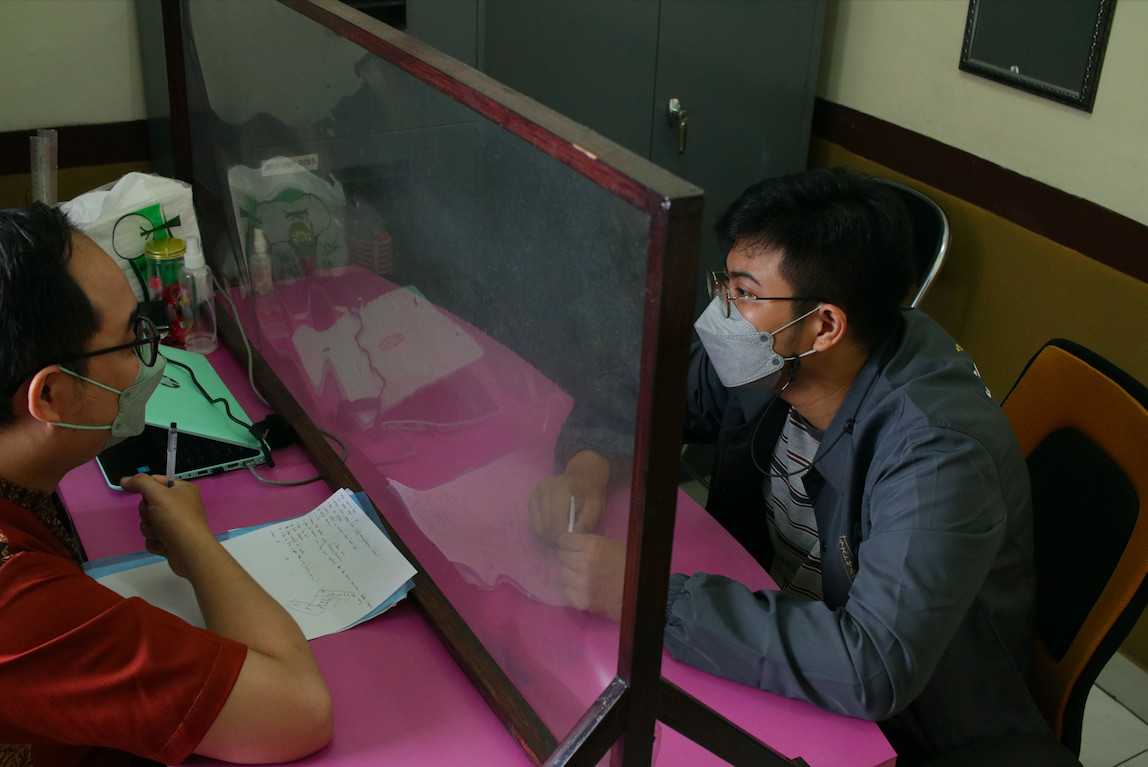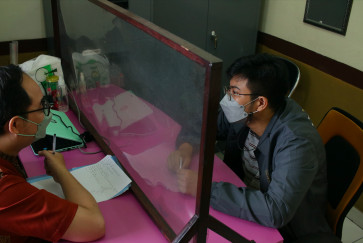Popular Reads
Top Results
Can't find what you're looking for?
View all search resultsPopular Reads
Top Results
Can't find what you're looking for?
View all search resultsMake mental health and wellbeing for all a global and a local priority
Experiences during the COVID-19 pandemic showed how urgent it is to increase the quantity and quality of investment in mental health policies and programs.
Change text size
Gift Premium Articles
to Anyone
E
very year, International Mental Health Day is commemorated on Oct. 10 in many places in the world, including in Indonesia. October is also dedicated Mental Health Awareness Month.
The commemoration has become even more important since 2020, because the COVID-19 pandemic has significantly increased the burden and risk of mental health for many people in the world. The pandemic has very clearly shown how inseparable physical health is from mental health. Both are like two sides of the same coin. No health without mental health.
Additionally, COVID-19 shows how urgent it is to increase the quantity and quality of investment in mental health policies and programs. Disrupted mental health not only causes suffering and reduces the quality of life and productivity for the sufferers, but also for their families and the surrounding environment. Therefore, the mental health day theme this year is timely, i.e. "Make Mental Health and Wellbeing for All a Global Priority".
Of course, given such a theme, we also should make mental health a priority at the local level. In Indonesia, the theme of mental health day is "Recovering with a Mentally Healthy Generation", which is clearly related to the context of recovering from COVID-19.
There are various data that we can use to support the need to prioritize mental health. The 2018 Indonesian Basic Health Research showed that more than 19 million people aged 15 years old and over had mental and emotional disorders and more than 12 million were depressed. Moreover, the self-examination facilitated by the Indonesian Association of Psychiatrists among 14,988 people in the period of March 2020 to March 2022 showed that 75 percent have mental problems. A total of 71.7 percent experienced anxiety, 72.9 percent depression and another 84 percent suffered from psychological trauma.
It is also worth noting that 85.1 respondents experienced problems related to the issue of suicide and of the 1,201 people, as many as 36 percent stated that they had prepared for or even done something to end their life (suicide attempts). This is of course alarming for all of us.
Recently, a variety of mass media in the country have reported incidents of suicides in several areas in Indonesia. In South Sulawesi, for example, a young mother in Pinrang regency committed suicide last month, which tragically also included two of her small children. This is clearly the tip of the iceberg of the actual magnitude of mental health problems that exist in the field.



















